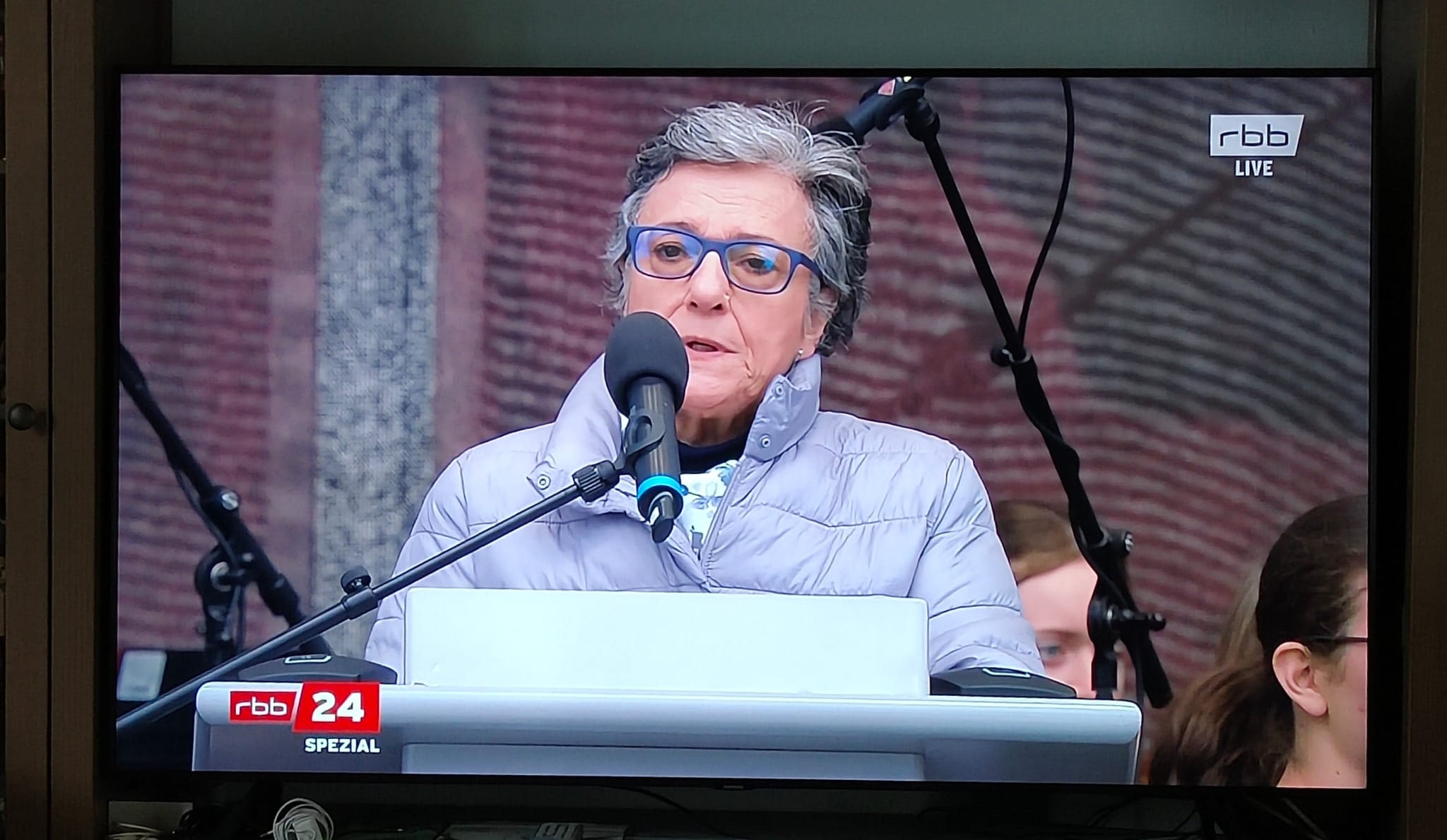80th anniversary of the liberation of the Ravensbrück Memorial - 4 May 2025
19.05.2025

I am very pleased to bring greetings from the International Ravensbrück Committee, and in particular from Barbara Piotrowska, Stella Nikiforowa and Ib Katznelson who were child survivors of the camp, and from Jewgenia Boiko, born in the camp, who has been living through the tragedy of the war in Uckraina for three years. In 1959, the Ravensbrück Memorial was inaugurated, which the Committee strongly desired in order to honour the deceased comrades and not to disperse the memory of the place of their suffering. On that occasion, the women signed a Solemn Promise that today represents, for the second and third generation of the International Committee, a beacon on the goals to be pursued. Our mothers asked us to always keep in our hearts the memory of the women and children murdered by Nazi-fascism and to watch over their message because Life and humanism must triumph over the forces of war and fascism so that the happiness of all people can grow so that the young generations of the five continents can move towards a secure future. Friendship between peoples is a commitment to peace. Let us fight this noble race to achieve the good and the beautiful in the world. Let international negotiations be conducted everywhere with the sincere will of mutual help. Peace to all peoples Peace to all the world We make a Solemn Vow This Solemn Vow today, 80 years later and in the light of the events of recent years, seems to have become utopian, but at the same time expresses the urgency of being heard. For this reason, the CIR's commitment becomes more important every year, but also more difficult, and to achieve it, the unity of the countries we represent is fundamental because our mothers went through the greatest tragedy of the 20th century facing it with courage and often finding strength in solidarity. They did not ask themselves whether the companion who stood next to them, and who suffered the same suffering as they did, was from another country, another ethnic group or religion, or had different political views. All they knew was that she was, like them, the victim of a tragic discrimination that they never wanted to see repeated. This was their teaching that we must honour by projecting it into the future so that it is not lost in the folds of time and becomes a warning for future generations.